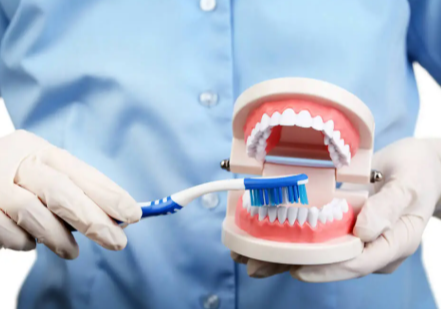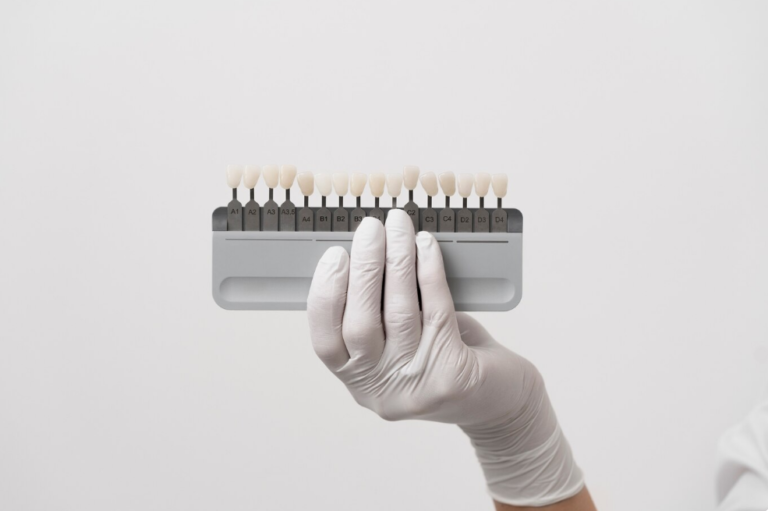Comprehensive Guide to Wisdom Teeth Removal in Edmonton
Getting your wisdom teeth out is a pretty common thing, especially for younger adults. These teeth, way in the back of your mouth, can cause a lot of trouble if they don’t come in correctly. We’re talking pain, crowding, and even infections. In Edmonton, there are lots of places to get this done, but the cost can change a lot depending on different things. This guide will tell you all you need to know about getting your wisdom teeth removed in Edmonton, including what it costs and how to make it more affordable.
Key Takeaways
- Wisdom teeth removal in Edmonton is a common procedure, often needed to stop future dental problems.
- The process usually starts with a check-up, then you get ready for surgery, and finally, the actual procedure.
- You have options for staying comfortable during the procedure, like local numbing, light sedation, or being fully asleep.
- After the surgery, you’ll need to follow care instructions to help with healing and manage any pain or swelling.
- The cost of getting wisdom teeth out in Edmonton can be different for everyone, so it’s good to look into payment plans and insurance.
Understanding Wisdom Teeth Removal in Edmonton
What Are Wisdom Teeth?
Okay, so wisdom teeth. They’re those third molars that pop up way in the back of your mouth, usually when you’re somewhere between 17 and 25. Some people get them without any fuss, but for others, they can be a real pain – literally. They’re called wisdom teeth because they come in when you’re supposedly getting wiser, but honestly, they often just cause trouble. Not everyone even gets wisdom teeth; some people are born without them. It’s all a genetic lottery, really.
Why Wisdom Teeth Removal is Necessary
So, why do so many people end up needing their wisdom teeth yanked out? Well, a lot of the time, there just isn’t enough room in your jaw for them to come in straight. This can lead to them getting stuck (impacted) or pushing against your other teeth. Impacted wisdom teeth can cause a whole host of problems, and that’s why removal is often recommended. Plus, even if they do come in, they’re so far back that they’re hard to clean, which means they’re prone to cavities and gum disease. No fun.
Common Issues Caused by Wisdom Teeth
Wisdom teeth can cause a surprising number of issues. Here’s a quick rundown:
- Pain: This is probably the most common complaint. Impacted teeth can put pressure on your jaw and other teeth, leading to constant aches or sharp pains.
- Infection: When wisdom teeth only partially erupt, they can create a flap of gum tissue that traps food and bacteria. This can lead to pericoronitis, a nasty infection.
- Crowding: If there’s not enough room, wisdom teeth can push your other teeth out of alignment, undoing years of orthodontic work. Nobody wants that!
- Damage to Adjacent Teeth: Sometimes, wisdom teeth can press against the roots of your second molars, causing damage or even bone loss.
Ignoring problematic wisdom teeth can lead to bigger, more expensive dental issues down the road. It’s often better to deal with them proactively than to wait for complications to arise. Think of it as preventative maintenance for your mouth.
The Wisdom Teeth Removal Process in Edmonton
So, you’re thinking about getting your wisdom teeth out in Edmonton? Let’s walk through what the whole process looks like, from start to finish. It’s not as scary as it sounds, I promise!
Initial Consultation and Assessment
First things first, you’ll need to book a consultation with a dentist or oral surgeon. This appointment is super important because they’ll take a look at your mouth and figure out if you actually need your wisdom teeth removed. They’ll probably take X-rays to see how your wisdom teeth are positioned and if they’re causing any problems, like crowding or potential damage to other teeth. They’ll also chat with you about your medical history and any concerns you might have. This is your chance to ask all those burning questions!
Preparing for Your Wisdom Teeth Surgery
Okay, so the dentist says you need your wisdom teeth out. Now what? Well, there are a few things you’ll need to do to get ready for the big day.
Here’s a quick checklist:
- Arrange for a ride: You won’t be able to drive yourself home after the surgery, especially if you’re getting sedation or general anesthesia.
- Stock up on soft foods: Think soup, yogurt, smoothies, mashed potatoes – anything that won’t require a lot of chewing.
- Get your prescriptions filled: Your dentist will likely prescribe pain medication and maybe an antibiotic. Pick them up ahead of time so you’re not scrambling after the surgery.
- Follow pre-operative instructions: Your dentist will give you specific instructions, like when to stop eating and drinking before the procedure. Stick to them!
It’s a good idea to avoid smoking or drinking alcohol in the days leading up to your surgery, as these can interfere with healing.
What to Expect During the Procedure
The actual surgery itself usually takes between 30 minutes to an hour, depending on how many teeth are being removed and how complicated the extractions are. You’ll be given some form of anesthesia to keep you comfortable – we’ll talk more about those options later. The dentist will then carefully remove your wisdom teeth. Sometimes, they might need to make small incisions in your gums or remove some bone to get the teeth out. Once the teeth are out, they’ll clean the area and stitch up the gums. You’ll probably feel some pressure and maybe some weird sensations, but it shouldn’t be painful, thanks to the anesthesia. After the procedure, you’ll hang out in the recovery area for a bit until you’re feeling up to heading home.
Anesthesia Options for Wisdom Teeth Removal
Getting your wisdom teeth out? One of the big questions is always: what kind of anesthesia will they use? It’s a valid concern, and knowing your options can make the whole process a lot less scary. Here’s a breakdown of what you can expect in Edmonton.
Local Anesthesia
This is the most basic option. The dentist injects the anesthetic right into your gums where the teeth are being removed. You’ll be awake during the procedure, and you’ll feel pressure, but you shouldn’t feel any pain. It’s pretty common for simple extractions.
Sedation Options
If you’re a bit anxious (and let’s be honest, who isn’t?), sedation might be a good choice. There are a few levels:
- Nitrous Oxide (Laughing Gas): This is a mild sedative that you inhale through a mask. It helps you relax, and the effects wear off quickly.
- Oral Sedatives: You take a pill before the procedure to help you feel calm. It can make you drowsy, so you’ll need someone to drive you home.
- IV Sedation: This is administered through a vein, and it can range from moderate sedation (where you’re still conscious but very relaxed) to deep sedation (where you’re mostly unaware of what’s happening).
General Anesthesia
With general anesthesia, you’re completely unconscious during the procedure. The staff will keep a close eye on your vitals to make sure you’re safe. It’s usually reserved for more complex cases or if you have significant anxiety.
Choosing the right anesthesia is a conversation you should have with your dentist in Edmonton or oral surgeon. They’ll consider your anxiety level, the complexity of the extraction, and your overall health to recommend the best option for you. Don’t be afraid to ask questions and voice your concerns!
Recovery and Aftercare for Wisdom Teeth Removal
So, you’ve just had your wisdom teeth yanked out. Now comes the not-so-fun part: recovery. It’s not a walk in the park, but following these tips can make things a whole lot easier. Honestly, the first few days are key, so pay attention!
Immediate Post-Operative Care
Alright, right after surgery, bite down firmly on the gauze pads your surgeon gave you. This helps stop the bleeding. Change them every 30-45 minutes, or as directed. Don’t go overboard with talking or moving your mouth too much. Just chill. You’ll probably feel pretty out of it, which is normal. Ice packs are your best friend for the first day or so. Apply them to your cheeks for 20 minutes on, 20 minutes off. This helps a lot with the swelling.
Managing Pain and Swelling
Okay, let’s talk pain. You’ll likely get a prescription for pain meds. Take them as directed, even if you think you don’t need them at first. It’s better to stay ahead of the pain. Keep using those ice packs for the first 24-48 hours to keep swelling down. After that, switch to warm compresses. They help with stiffness. Rinse your mouth gently with warm salt water (1/2 teaspoon of salt in 8 ounces of water) after every meal and before bed. This keeps the area clean and helps prevent infection.
Diet and Activity Restrictions
Food time! Stick to soft foods for the first few days. Think yogurt, applesauce, soup (not too hot!), and mashed potatoes. Avoid anything that requires a lot of chewing or could get stuck in the extraction sites. No straws! Seriously, using a straw can dislodge the blood clots and cause a dry socket, which is super painful. As for activity, take it easy. No heavy lifting, strenuous exercise, or anything that could raise your blood pressure for at least a week. Rest is key for healing.
Potential Complications and When to Seek Help
Most people recover without any problems, but sometimes things can go wrong. Watch out for these signs: severe pain that isn’t relieved by medication, excessive bleeding, fever, pus or discharge from the extraction sites, numbness or tingling in your lip or tongue, or difficulty breathing or swallowing. If you experience any of these, call your dentist or oral surgeon right away. Don’t wait! It’s always better to be safe than sorry.
Listen to your body. If something doesn’t feel right, it probably isn’t. Don’t hesitate to reach out to your dental professional if you have any concerns during your recovery. They’re there to help you get through this as smoothly as possible.
Cost of Wisdom Teeth Removal in Edmonton
Factors Influencing the Cost
So, you’re probably wondering how much this whole wisdom teeth thing is going to set you back. Well, it’s not a simple answer. Several things affect the final price tag. The big ones are how difficult the extraction is, what kind of anesthesia you choose, and, of course, which dentist or oral surgeon you go with.
- Complexity of the Extraction: Impacted teeth (those stuck under the gums) are way more work than teeth that have already erupted. More work equals more money.
- Type of Anesthesia: Local anesthesia is the cheapest option, while general anesthesia will definitely increase the cost.
- Dentist’s or Surgeon’s Fees: Different professionals have different rates, so it pays to shop around a bit.
Average Costs for Different Cases
Okay, let’s get down to some numbers. Keep in mind these are just averages, and your actual cost could be higher or lower. For a simple extraction with local anesthesia, you might be looking at $200-$350 per tooth. If the teeth are impacted or you need sedation, that price can jump to $800-$1500 per tooth.
| Scenario | Estimated Cost per Tooth | Total (4 Teeth) | Notes |
| Simple Extraction, Local | $250 | $1000 | Straightforward removal, minimal complications. |
| Impacted Tooth, Local | $500 | $2000 | Requires more surgical skill. |
| Impacted Tooth, Sedation | $800 | $3200 | Includes cost of sedation. |
| Complex Impaction, General Anaesthesia | $1200 | $4800 | Most expensive option, used for very difficult cases or anxious patients. |
Is Wisdom Teeth Removal Worth the Cost?
I know, I know, it sounds like a lot of money. But think about it this way: leaving problem wisdom teeth in can cause a whole host of issues down the road. We’re talking pain, infections, damage to other teeth, and even cysts or tumors (rare, but still!). Dealing with those problems later can end up costing you even more in the long run.
Getting your wisdom teeth removed is an investment in your future dental health. It can prevent a lot of pain and expensive problems later on. Plus, who wants to deal with a constant toothache? Not me!
Payment and Financing Options for Wisdom Teeth Removal
Okay, so you’re looking at getting your wisdom teeth out in Edmonton. That’s great! But let’s be real, the cost can be a bit scary. It’s something a lot of people worry about. Let’s break down how you can actually pay for this thing.
Dental Insurance Coverage
First things first, check your dental insurance. A lot of plans will cover at least part of the extraction, especially if it’s deemed medically necessary. Call your insurance company and ask them about the specifics of your plan. Find out what percentage they cover, what the annual maximum is, and if there are any waiting periods before you can use the benefits. It’s worth the call to see how much you can save.
Flexible Payment Plans
If paying the whole amount upfront isn’t doable, ask your dentist’s office about payment plans. Many clinics in Edmonton understand that this can be a big expense, and they’re willing to work with you. They might offer a payment schedule where you can pay in installments over a few months. Don’t be shy about asking; it could make a huge difference.
Student Discounts and Dental School Clinics
Are you a student? You might be in luck! Some dental clinics offer discounts to students, which can really help ease the financial burden. Also, look into dental school clinics. These clinics often provide services at reduced costs because the work is done by students who are supervised by experienced dentists. It’s a win-win: you save money, and the students get valuable experience.
Government Programs and Healthcare Financing
Don’t forget to explore government programs that might offer assistance. Programs like AISH (Assured Income for the Severely Handicapped) might provide health benefits if you qualify. Also, consider healthcare financing options, like loans or credit lines specifically designed for medical expenses. These can help you spread out the cost over a longer period, making it more manageable.
It’s easy to get stressed about the cost of wisdom teeth removal, but there are options. Talk to your dentist, explore different payment methods, and don’t be afraid to ask for help. A little planning can make the whole process much less daunting.
Choosing the Right Dental Professional for Wisdom Teeth Removal
Importance of an Experienced Oral Surgeon
When it comes to wisdom teeth removal, you really want someone who knows what they’re doing. An experienced oral surgeon can make a huge difference in how smoothly the procedure goes and how quickly you recover. It’s not just about pulling teeth; it’s about understanding the anatomy of your mouth, anticipating potential problems, and handling any complications that might arise. Think of it like this: you wouldn’t want a novice pilot flying your plane, right? Same goes for surgery!
Researching and Reading Reviews
Okay, so you know you need someone good. But how do you find them? Start by doing your homework. Look online for oral surgeons in Edmonton who specialize in wisdom teeth removal. Read reviews on sites like Google, Yelp, or even dental-specific review platforms. Pay attention to what other patients are saying about their experiences. Did the surgeon explain things clearly? Did they feel comfortable and well-cared for? Were there any unexpected issues during or after the procedure? A few negative reviews aren’t necessarily a deal-breaker, but a pattern of complaints should raise a red flag.
Questions to Ask Your Dentist or Surgeon
Before you commit to a surgeon, schedule a consultation. This is your chance to get to know them, ask questions, and make sure you feel comfortable with their approach. Here are a few questions you might want to ask:
- What is your experience with wisdom teeth removal, specifically complex cases?
- What anesthesia options do you offer, and which do you recommend for my situation?
- What are the potential risks and complications associated with my case?
- What is your post-operative care protocol?
- What is the estimated cost of the procedure, and what payment options are available?
Choosing the right dental professional is a big decision. Don’t rush it. Take your time, do your research, and ask plenty of questions. Your oral health is worth it!
Wrapping Things Up
So, that’s pretty much everything you need to know about getting your wisdom teeth out here in Edmonton. It might seem like a big deal, but honestly, it’s a super common thing. Knowing what to expect, from the first chat with your dentist to what happens after the surgery, can make it a lot less scary. Just remember to ask lots of questions, pick a good place to get it done, and follow all the instructions for aftercare. Doing all that will help make sure everything goes smoothly and you’re back to normal in no time. Your smile will thank you for it!
Frequently Asked Questions
Is wisdom teeth removal always necessary?
Not everyone needs their wisdom teeth out. If they grow in straight and don’t cause problems, they can stay. But if they’re causing pain, crowding other teeth, or leading to infections, then taking them out is usually the best choice.
How long does the wisdom teeth removal procedure take?
The time it takes depends on how many teeth are removed and how tricky they are to get out. Simple cases might be quick, around 20-30 minutes, while more complex ones can take longer. Your dentist will give you a better idea after checking your mouth.
How painful is wisdom teeth removal, and how long is the recovery?
You’ll likely feel some soreness and swelling for a few days after the surgery. Your dentist will give you pain medicine to help. Most people start feeling much better within a week, but full healing can take a few weeks.
What should I do after my wisdom teeth are removed to ensure a good recovery?
Yes, it’s very important to follow all the instructions your dentist gives you for aftercare. This includes eating soft foods, keeping the area clean, and avoiding straws. Doing so helps you heal quickly and prevents problems like dry socket.
How much does wisdom teeth removal usually cost in Edmonton?
The cost can change a lot based on how many teeth you need out, if they’re stuck in your jaw (impacted), and what kind of numbing medicine you get. Simple removals are cheaper than complicated ones. It’s best to ask your dentist for an exact price after they look at your teeth.
Are there ways to make wisdom teeth removal more affordable?
Many dental insurance plans cover some of the cost, especially if it’s medically needed. Some dental offices also offer payment plans to help you pay over time. You can also check if there are student discounts or if dental schools offer lower prices.






